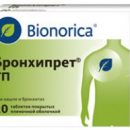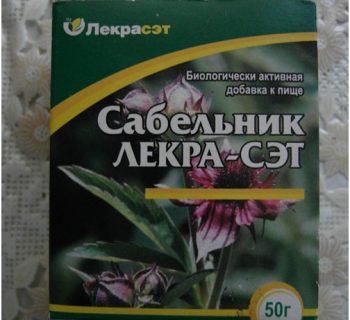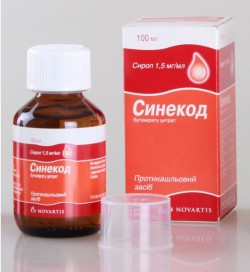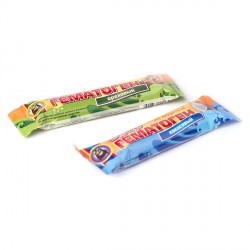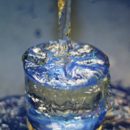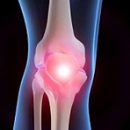It is with the help of cough an organism and tries to cleanse the mucus and in it in large numbers of harmful microbes. The faster the body from mucus is liberated, the faster the improvement in the state and recovery will come, then the cough will come back. It often happens so that the mucus has a very viscous and thick structure, man coughes, and it does not go out, bubbles somewhere deep inside. Then comes to the rescue drug ACS. Our site decided to tell your readers about it. You will learn how the drug works, to whom it is recommended and in what cases. Get acquainted with side effects and will be warned about what diseases and circumstances this medicine cannot be used.
Drug General Information
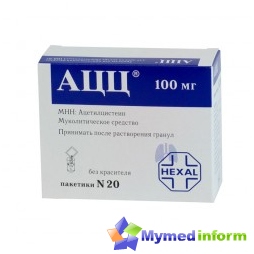
This medicine in recent years is considered one of the best means to help with coughing, although he has a list of contraindications, conventions and restrictions in the appointment. Considering the worship, fame and positive results, pharmacologists constantly develop its new dosage forms that are more convenient to patients for use. Therapists and pediatricians write it up to almost every third patient who appeal with complaints about annoying cough. The active substance in the drug is acetylcysteine, this is based on the abbreviation name - the ACC. This is a chemical compound - a derived known amino acid - cysteine. Finding into a sick human body already tired of cough, it can work wonders. In most cases, such patients in the airways are very thick and viscous mucus (sputum), which interferes with air flow to circulate, constantly annoying mucous membranes, thereby causing the bouts of a long cough. And another wet environment is a good basis for further reproduction of pathogenic microorganisms. Vicious circle, as a result of which the disease takes a protracted character. Exacerbating symptoms more and more disturbing, especially at night, the most patient and his relatives. Here in such cases and is suitable for the treatment of acetylcysteine, which belongs to the mercolytic and expectorant means. This group of drugs has the ability to voice the exudate mucosity and facilitate its evacuation from the respiratory tract. In addition to the ACC, the group of mucolithics includes bromgexin, ambroxol, syrup derived from licorice root.
How the medicine acts?
Acetylcysteine affects thick sputum at the molecular level. At the same time, the destruction of bonds between the sulfur atoms (they are also called disulfide bridges). These are these ties and make a sputum of increased viscosity. Thanks to the ACC, the secret becomes more liquid and fluid, it is easier for it to leave the lungs and respiratory tract. ADC particles destroy the integrity of viscous components called mucopolysaccharides. Now the sputum is capable of moving out on the bronchial tree towards the oral cavity. The cough first becomes more wet, productive, man spars the sputum. Gradually, cough disappears, following the nature entrusted to it. Acetylcysteine has an antioxidant property, providing a beneficial effect on the local inflammatory process flowing in bronchi.
When the ACS is appointed?

The drug is shown in all diseases for which the pathological accumulation of thick exudate (sputum) in lungs, bronchops and other parts of the respiratory system are characterized by:
- bronchiectatic disease;
- obstructive, chronic and acute bronchitis;
- COPL (so physicians call abbreviated chronic obstructive disease of the lungs);
- bronchip, pneumonia;
- Bronchial asthma;
- Sinusite in acute and chronic stage;
- Larygite, Tracheyite, Farriage;
- Exudative otitis;
- Mukobovysidoz (about this disease recently told our readers our website).
Dosage
In the pharmacy, you can meet the ACC in the form of bags with granular powder, effervescent tablets, solutions for injection (intramuscular, intravenous and drip injections). On the packages next to the title indicate numbers: 600, 100, 200 - this is the number of milligrams of the active substance in one bag or hip tablet. For example, the ACC 100 means that the bag contains 100 mg of acetylcysteine. If there is an inscription «Long», This means that the dose of acetylcysteine in a tablet is 600 mg, this amount is taken once a day, the drug has a prolonged (elongated) action. The hip tablet or the contents of the bag (granulated powder) before the admission is necessarily dissolved in 100 ml of water. Children instead of water allowed to use fruit juice, milk. Liquid can be warm but not hot. Take the hell better after eating. In the days of treatment, try to drink more fluid, mineral water (for example, «Borjomi») - All this helps to strengthen the therapeutic effect of acetylcysteine. And now about the dosage:
- Adults and adolescents who have reached the age of 14 per day must be taken from 400 to 600 mg of drug. Dose must be divided into two or three receptions. If you bought a drug for 600 mg, then it must be served once.
- If the child is from 6 to 14 years old, then it gives 100 mg of medication three times a day.
- Children from 2 to 5 years old, the ACC is given twice a day at 100 mg, in rare cases, the reception is carried out three times.
- Todders up to two years are allowed to drink ADC only on the prescription of the pediatrician, then the dose can be 50 mg two or three times a day.
Doctors usually recommend drinking the drug for five or seven days. With bronchitis rate longer. But in case of fibrosis, the doctor individually decides, as a patient to take the ACC, it all depends on the severity of the state and form of the disease.
Are there any side effects?
Unwanted effects during the reception of the ACC are found, but rarely. And yet MyMedinform.COM will call them:
- nausea, heartburn, vomiting, stool disorders (in the form of diarrhea);
- Blood pressure can be reduced briefly;
- dizziness, noise in the ears;
- the increase in heart cuts;
- Hardwriter, itchy rash, bronchospasm (among people predisposed to him).
When it is impossible to use the drug?
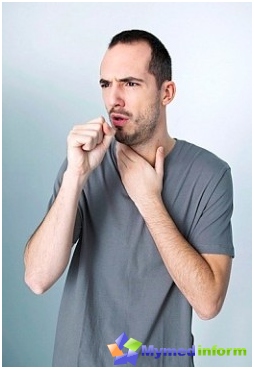
The manufacturer warns that acetylcysteine is contraindicated in the following cases:
- with light bleeding and hemopes;
- If an ulcer in the gastrointestinal tract was aggravated;
- In the case of individual intolerance and increased sensitivity of the person to the components of the drug.
Carefully take the drug to those who suffer from serious impairment of kidney, adrenal glands or liver, bronchial asthma with hypersecretion.
Data on how the ACC affects the fruit and a pregnant woman, very little, so it is better to avoid receipt of the drug during pregnancy and with breastfeeding newborn.
special instructions
It is extremely recommended to take a Mukolitic ADC and antitussive tools at the same time, since then the danger of wastings of sputum in the respiratory system.
If you are taking nitroglycerin, it should be remembered that the ATSC enhances its vasodilator action.
Incompatible ads of the ACC simultaneously with antibiotics, representatives of the groups of semi-synthetic penicillins, tetracycline, aminoglycosides and cephalosporins. Therefore, when buying an antibiotic prescribed by a doctor, you will certainly ask the pharmacist from a pharmacy from which group this antibiotic. If this is a representative of the above groups, then between the admission of this tool and the ACC should be required 2 hours, then no conflict between drugs will occur.
When buying also pay attention to the fact that on the bag can be written that it is used to prepare a hot drink. Such granules must be dissolved in hot liquid.
Missing the ACC is necessary in glassware, avoid contact medication with metal, a wooden wand is suitable for stirring or a small porcelain spoon.
Here are the properties of the popular medicine of the ACC. If you comply with all the recommendations and doses, considering special instructions, it will improve the removal of sputum and help get rid of the flowering cough.

